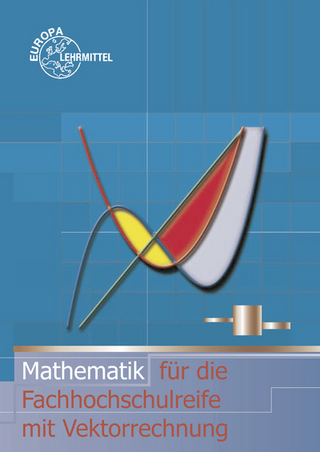
The Case Against Christianity
Temple University Press,U.S. (Verlag)
978-1-56639-081-1 (ISBN)
In this systematic philosophical critique of the major tenets of Christianity, Michael Martin examines the semantic and epistemological bases of religious claims and beliefs. Beginning with a comparison and evaluation of the Apostles’ Creed, the Niceno-Chalcedonian Creed, and the Athanasian Creed, Martin discusses the principal theological, historical, and eschatological assumptions of Christianity. These include the historicity of Jesus, the Incarnation, the Second Coming, the Virgin Birth, the Resurrection, Salvation through faith in Jesus, and Jesus as a model of ethical behavior.
Until now, an adequately convincing criticism of Christianity did not exist. Martin’s use of historical evidence, textual analysis, and interpretations by philosophers and theologians provides the strongest case made to date against the rational justification of Christian doctrines.
Michael Martin, Professor of Philosophy at Boston University, is the author of The Legal Philosophy of H.L.A. Hart and Atheism: A Philosophical Justification (both from Temple).
Preface Introduction 1. The Basis of Christian Belief Christian Belief and Epistemic Reasons * Christian Belief and Beneficial Reasons * Christian Doctrines and Faith * Christian Doctrines as Basic Beliefs * Conclusion 2. The Historicity of Jesus The Problem * Skepticism and the Historical Jesus * Wells's Argument in Brief * The Argument Expanded and Defended * Criticisms of the Wellsian Thesis * Conclusion 3. The Resurrection Initial Obstacles to Belief in the Resurrection * The Evidence for the Resurrection * The Purposes of the Gospel Writers * The Inconsistency of the Resurrection Story * The Lack of Eyewitnesses * The Reliability of the Eyewitnesses, the Reporters, and the Scribes * Lack of Independent Confirmation * Habermas's Defense of the Resurrection * Conclusion 4. The Virgin Birth and the Second Coming The Virgin Birth * The Story * The Evidence * The Coherence of the Virgin Birth with Jesus' Genealogy * Belief in the Virgin Birth and Improbabilities * The Relevance of Virgin Birth to the Truth of Theism and the Incarnation * The Second Coming * The Evidence: What Did Jesus Teach? * The Evidence: Was Jesus Correct and What Difference Would it Make? * The Second Coming and Faith * Conclusion 5. The Incarnation The Conceptual Problems of the Incarnation * Four Conceptual Problems * Morris's Solution * Evaluation of Morris's Solution * Conclusion on Conceptual Problems * The Truth of the Incarnation * Morris's Defense * The Evidence Needed * Conclusion on the Truth of the Incarnation 6. Christian Ethics What Ethical Principle Did Jesus Teach? * The Ethical Teaching of the Synoptic Gospels * The Moral Practices of Jesus * What Jesus' Practices and Teachings Neglect * Evaluation of Jesus' Ethics * The Love of God and Faith in Jesus Commandments * The Purity of Heart and Language Commandment * The Commandment of Humility * The Love Your Neighbor Commandment * Conclusion 7. Salvation by Faith Biblical Doctrines of Salvation * Evaluation of the Doctrine * The Dependency on Other Christian Doctrines * The Incompatibility with Belief in an All-Good God * Conclusion 8. Christian Responses Nonliteralism * The Symbolic Meaning and the Virgin Birth * Demythologizing and Eschatology * Noncognitivism and Agape * Other Possible Responses * Rationalism * Historical Subjectivism * Extreme Fideism or Irrationalism * Moderate Fideism * Christian Foundationalism * Liberal Reductionism * Conclusion Appendix A: The Divine Command Theory Varieties of the Radical Divine Command Theory * Evaluation of the Radical Divine Command Theory * The Semantics Problem * Moral Problems * The Epistemological Problem * The Conceptual Problem * A Modified Divine Command Theory * Conclusion Appendix B: The Atonement Major Theories of the Atonement * The Ransom Theory * The Satisfaction Theory * The Acceptance Theory * The Penal Theory * The Government Theory * The Moral Theory * The Christus Victor Theory * The Mystic Theory * Conclusion Biblical Index General Index
| Erscheint lt. Verlag | 29.3.1993 |
|---|---|
| Verlagsort | Philadelphia PA |
| Sprache | englisch |
| Maße | 152 x 229 mm |
| Themenwelt | Religion / Theologie ► Christentum ► Kirchengeschichte |
| ISBN-10 | 1-56639-081-8 / 1566390818 |
| ISBN-13 | 978-1-56639-081-1 / 9781566390811 |
| Zustand | Neuware |
| Informationen gemäß Produktsicherheitsverordnung (GPSR) | |
| Haben Sie eine Frage zum Produkt? |
aus dem Bereich



